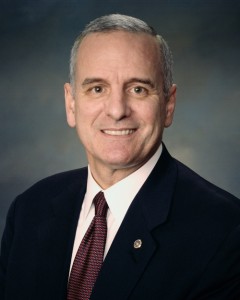


On May 6, 2015, Gov. Dayton signed the Minnesota Right to Try Act into law, allowing terminally ill patients the right to apply for the use of drugs and devices not yet approved (not fully, anyway) by the FDA. See Pioneer Press article below:
It’s important to know that your doctor has to put some declarations in writing, such as the fact that you are terminal, that you’ve tried everything else FDA approved pertinent to your illness, and that they are recommending the use of this “experimental” drug/device. Then one applies for the use of the partially approved drug/device (meaning, the drug/device has to have at least passed “phase 1” of FDA trials). And, two other important things to note: 1) the company manufacturing said drug/device does not have to give you permission to use it, and 2) you are responsible for paying for it yourself. See the text of SF100 (The “Right to Try” Act) below:
What does this mean for you? For some of us, it won’t change anything- some of us will ignore it, others will choose to support the Right to Die instead, which has not been passed into law yet (in Minnesota). See Right to Die Legislation in Minnesota. For some, it may change everything, however – giving an opportunity to continue to hope for recovery when the approved methods have been exhausted.
Each of us has a Constitutional right to make our own health care choices – even nominate someone who will exercise our wishes for us if we can’t speak or decide for ourselves anymore. In Minnesota, this nomination is usually and most easily made through a legal document called a Health Care Directive (HCD). Some of you have taken the important step of putting your thoughts, hopes, and decisions in a HCD. If you already have a HCD or if you need one still because you just haven’t gotten around to handling that detail, let this be another reminder of the importance of 1) thinking through your end-of-life wishes and choices, and 2) articulating them in writing for your loved ones to understand and follow your choices. Maybe you’ll want to consider including your interest in this new law as an important instruction to your agent (or, quite the opposite, make it clear you do not want this law to play a part in your terminal state). An experienced attorney can assist you with drafting this essential legal document and articulating your thoughts and wishes to your health care professionals and your loved ones.
This blog is written by Bridget-Michaele Reischl, Attorney DECORO LAW OFFICE, PLLC www.decorolaw.com
Contact Bridget-Michaele Reischl at: DECORO LAW OFFICE, PLLC 6 West 5 th Street, Suite 800-D Saint Paul, MN 55102 (651)-321-3058 bridget@decorolaw.com